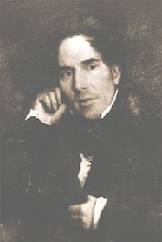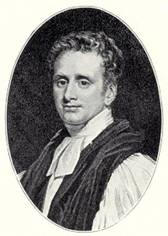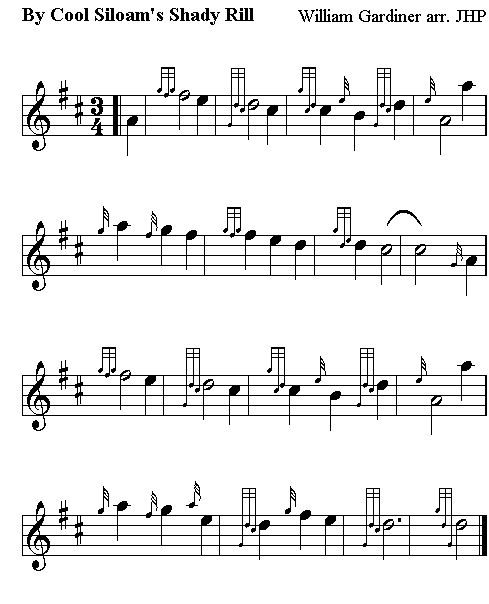
Best viewed in
Internet Explorer
Music (PDF)
Midi
Music (BMW)
Back to

Updated
09/03/2020 |
By Cool Siloam’s Shady Rill

William Gardiner |
The
pre-Israelite settlement of Siloam is now the Arab community of
Silwan in East Jerusalem, south of the Old City. The ancient
community that was built around the "serpent-stone", Zoheleth,
where Adonijah gave his feast in the time of Solomon, is the
site of the Pool of Siloam, where Jesus healed a man blind from
birth as described in the Gospel of John, and of the
legendary Tower of Siloam, whose collapse is an admonitory omen
mentioned in the Gospel of Luke.
The
melody is by William Gardiner (1750-1853) with words by Reginald
Heber (1783-1826). William
Gardiner (1867-1941) was a Primitive Methodist preacher from
Suffolk who was accused of the Peasenhall Murder and underwent
two trials for murder, neither of which resulted in a verdict.
In June 1902, Rose Harsent, a servant girl, was found stabbed to
death by an unknown assailant. She was unmarried but found to be
six months pregnant. It was alleged that Gardiner was the father
of her unborn child: local gossip had led to a hearing within
his church at which he had been admonished for impropriety.
|

Reginald Heber |
The police originally thought it was
suicide, but, after investigation, Gardiner was arrested and tried twice
in 1902 and 1903. The first trail was presided over by Sir William
Grantham, the second by Sir John Compton Lawrance. At each trial
Gardiner was defended by Henry Fielding Dickens and prosecuted by Ernest
Wild. Both times the jury was unable to reach a verdict — it was said
that at the first trial the jury was split eleven to one in favor of
guilty, and the second eleven to one in favor of not guilty. The
prosecution then issued a writ of nolle prosequi. This was distinct from
the usual process of a formal acquittal. The consequence of this is that
Gardiner is one of the few people in English history to have been tried
for murder and to have no verdict ever returned.
Gardiner died in 1941 without having been
formally acquitted.
Reginald Heber (21 April 1783 – 3 April
1826) was a Church of England bishop, now remembered chiefly as a
hymn-writer. Heber was born at Malpas in Cheshire. His father, who
belonged to an old Yorkshire family, held half the living of Malpas.
eginald Heber showed
remarkable promise, and in November 1800 entered
Brasenose College, Oxford, where he proved a
distinguished student, carrying off prizes for a Latin
poem entitled Carmen seculare, an English poem on
Palestine, and a prose essay on The Sense of Honour.
In November 1804, he was elected a fellow of All Souls'.
After completing his university career, he went on a
long tour of Europe.
Having taken holy orders in 1807, he took up the family
living of Hodnet in Shropshire. In 1809 he married
Amelia Shipley, daughter of the Dean of St Asaph. He was
made prebendary of St Asaph in 1812, appointed Bampton
lecturer for 1815, preacher at Lincoln's Inn in 1822,
and Bishop of Calcutta in January 1823. Before sailing
for India he received the degree of D.D. from the
University of Oxford. In India, Bishop Heber laboured
indefatigably - not only for the good of his own
diocese, but for the spread of Christianity throughout
the East. He toured the country, consecrating churches,
founding schools and discharging other Christian duties.
His devotion to his work in
a trying climate told severely on his health. At
Trichinopoly (or Trichy in Tamil) he was seized with an
apoplectic fit when in his bath, and died. In Trichy,
Bishop Heber College is named after him - and is famous
for education and sports. A statue of him, by Chantrey,
was erected at Calcutta. Another monument to Heber, also
by Chantrey, can be seen along the south wall of the
Ambulatory of Saint Paul's Cathedral. Heber is depicted
as a kneeling figure in Episcopal robes. The relief on
the pedestal represents the prelate confirming converted
Indians.

Lyrics by
Reginald Heber
|
|
By cool
Siloam’s shady rill
How fair the lily grows!
How sweet the breath, beneath the hill,
Of Sharon’s dewy rose!
Lo! such
the child whose early feet
The paths of peace have trod,
Whose secret heart, with influence sweet,
Is upward drawn to God.
By cool Siloam’s shady rill
The lily must decay;
The rose that blooms beneath the hill
Must shortly fade away. |
And soon,
too soon, the wintry hour
Of man’s maturer age
Will shake the soul with sorrow’s power
And stormy passion’s rage.
O Thou
Whose infant feet were found
Within Thy Father’s shrine,
Whose years with changeless virtue crowned,
Were all alike divine.
Dependent on Thy bounteous breath,
We seek Thy grace alone,
In childhood, manhood, age, and death
To keep us still Thine own. |
|




